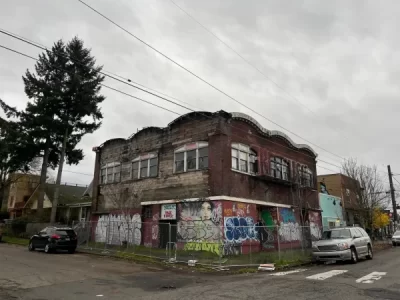Homeowners in Vancouver B.C., made more financial gain by sitting on their property than the entire population did through wage-earning last year. Rapid rising property values outpace earned income.
Sitting on Assets in Vancouver BC
Ian Young in Vancouver [email protected]
Wednesday, 01 June, 2016
Excerpts:
In Vancouver B.C., house owners made more sitting on their assets than entire population did by actually working last year. Rising land value of single family homes made owners about C$25billion in 2015 in Vancouver, exceeding all employment income in the city, according to mathematician Jens von Bergmann.
Top paying jobs aren’t easy to come by in the City of Vancouver, which partly explains its spiraling unaffordability. But there are at least 75,000 tireless workers here who last year made the incredible average rate of C$126 per hour. Sadly, these workers are not among the city’s human inhabitants.
They are its single-family homes.
In fact, the quiet efforts of these houses (or, more accurately, the dirt on which they sit) were rewarded so handsomely last year that they made their owners about C$25 billion, compared to an estimated C$19 billion in citywide employment earnings.
That’s right: the owners of single family houses in Vancouver made more by sitting on their assets than everyone in the entire city did by actually going to work.
“[There is] a tendency to view the money that is buying Vancouver real estate very critically, whereas once locals pocket the land value rises that same money is suddenly welcome and well deserved,”
von Bergmann said. “I find the vilification of the money pre-purchase in contrast to the silent acceptance of the money post-purchase problematic.”
It was in February’s throne speech, outlining her government’s agenda, that BC Premier Christy Clark made it clear she would “carefully protect the savings and equity that existing homeowners have painstakingly placed in their homes”.
“Painstaking” is not a word many would use to describe the process that last year saw the average price of a single-family home in the Metro Vancouver rise by 40 per cent, hitting C$1.8million.
Comment:
“savings and equity that existing homeowners have painstakingly placed in their homes” is a gross miss-statement. This equity buildup is in fact a giveaway. Shouldn’t some of this freely given wealth be retained for the general welfare of the community? According to William Batt, Central Research Group, Albany NY, “…a tax on land values is better understood as a tax on the “rental value” of land rather than a tax on its estimated sale value. Failure to do so simply rewards windfall gains, what is also called the speculative “unearned increment.” [Whereas] the tax on buildings has no benefits at all, and should be abandoned because it simply penalizes constructive enterprise.” Indeed, a shift of the property tax rate onto land values would help dampen Vancouver’s skyrocketing home prices, making housing more affordable.
Meanwhile…
Income inequality in Metro Vancouver has increased by more than twice the Canadian national average since 1982, according to a new report that shows inequality is concentrated in Canada’s biggest cities – Reports the Vancouver Sun, Published on July 28, 2017.
“The (CPA) report doesn’t tell us things that are a big surprise,” said Shane Simpson, the new Minister of Social Development and Poverty Reduction. “We’ve been struggling in British Columbia with growing inequality for a long time.”
Simpson said the new government has more work to “dig down” and understand the factors behind rising inequality, but that the government has ideas about some of the tools they can use to fill the gaps.
Simpson said the government needs to find ways of improving housing affordability — the biggest cost pressure on urban British Columbians. Simpson said his party has also talked about “some reallocation to close that gap at the very top,” by bringing back a surtax on the highest income earners.
Comment:
How about taking a critical look at residential land price inflation and windfall gains, the driver of unequal wealth accumulation!




